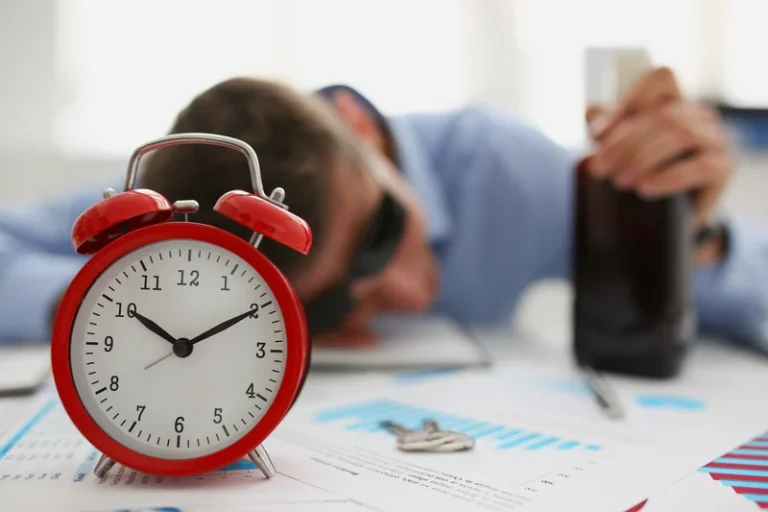
My goal here is to provide you with actionable strategies that can help you maintain your sobriety and live a fulfilling life. Family involvement is essential in preventing relapse because they offer emotional support, assist in identifying early signs of a setback, and engage in family wellness initiatives to aid their loved ones. Identifying the signs within each of the three stages of relapse—emotional, mental, and physical—is vital for successful prevention. It is Oxford House crucial to recognize that encountering a relapse doesn’t signify an end, but rather constitutes a temporary deviation or obstacle amidst one’s road to recuperation. Facing such challenges head-on with informed strategies, robust support systems, and comprehensive preventative measures allows us to persistently steer towards a sober life despite any setbacks encountered along the way.

Proven Strategies to Prevent Relapse

By recognizing triggers, individuals can develop proactive strategies to manage them effectively. Addiction is a chronic disease, and just like other chronic diseases, relapse is common. In fact, studies show that 40-60% of individuals relapse within a year after completing addiction treatment.
- This blog explores relapse prevention, strategies for avoiding triggers, and coping mechanisms to manage urges of repeat negative habits.
- If you’ve relapsed before, try to identify the feelings you felt before your relapse.
- Relapse prevention skills are essential to learning to live a happy life in recovery.
A Guide to Stay Free Sober Living: Creating a Safe and Supportive Environment for Recovery
- Unfortunately, a small group of people experiences repeated relapses that keep happening over an extended period of time.
- Psychotherapy modalities such as cognitive behavior therapy (CBT) have been proven effective in recognizing and handling the early warning signs of relapse.
- Manifestations like withdrawing socially, straying from established routines linked to recovery maintenance or experiencing inconsistent sleep patterns might presage an imminent emotional relapse.
- These coping mechanisms act akin to essential instruments needed to traverse through tumultuous times effectively—ensuring you remain directed towards your goal of long-term sobriety.
- It further prevents relapse as it decreases feelings of loneliness and the risk of isolation, both of which can be common triggers for relapse.
Support groups also let participants collectively learn from substance abuse group topics. They offer a sense https://ecosoberhouse.com/ of belonging and understanding, often missing from other social circles. Keep a note of your therapist’s phone number, emergency contacts, and a concrete action plan in case you relapse.
On A Mission To End Addiction!

The risk factor for someone with the disease of addiction or alcoholism relapsing that causes the most relapses than any other… Opening our eyes! As real addicts and alcoholics, Recovered On Purpose focuses all its what is relapse, and give 3 skills for preventing it from happening. programs around each individual becoming who they believe God created them to be. As a guiding tool, the HALT reminder—checking if one is hungry, angry, lonely, or tired—can be invaluable. By addressing these fundamental needs, individuals in recovery can maintain emotional equilibrium and prevent a relapse. Just as a sturdy house can keep you safe from the elements, good self-care can shield you from the triggers and stresses that could otherwise push you towards relapse. Staying engaged in your recovery is an ongoing commitment that requires dedication and effort.
- Contrary to what many people think, relapse is not an event that happens suddenly or spontaneously without warning signs.
- We provide comprehensive treatment programs, individual and group therapy, relapse prevention education, 12-step support groups, holistic therapies, and aftercare planning to support individuals in maintaining sobriety.
- One effective way to stay focused on recovery is by keeping a daily or weekly journal of your thoughts and feelings.
Establishing a regular gratitude practice and incorporating it into daily routines can help keep emotional relapse at bay. By cultivating gratitude, individuals can develop a more positive outlook on life and enhance their overall well-being, which can support their recovery journey. By prioritizing relapse prevention strategies, individuals can build the necessary skills and support to stay on the path to long-term recovery. There are different models and techniques to include in your relapse prevention plan. They’re based on building your knowledge and skills to combat substance use.
- Each time a person relapses, they return to old dangerous behaviors, but often adopt new, more risky behaviors, as well.
- A healthy lifestyle provides the physical energy and mental clarity needed to stay focused on your recovery goals.
- Within this same period lies also a window for intervention through which individuals can engage various tactics to combat urges toward substance abuse.
- A cognitive-behavioral strategy, relapse prevention focuses on helping individuals recognize and cope with high-risk situations that could prompt a return to previous behaviors.
- A strong support system is an integral part of staying sober in the long-term.

With repeated use, alterations in brain chemistry and functioning can result in the development of substance dependence. Once a person becomes significantly physically dependent, withdrawal symptoms and drug cravings may be common side effects if drinking or drug use slows or stops suddenly. Someone who has grown dependent on a substance may not feel “normal” without it. Therefore, a return to drug or alcohol use may seem like a good way to get back to feeling OK, curbing withdrawal symptoms, and combating strong cravings.







